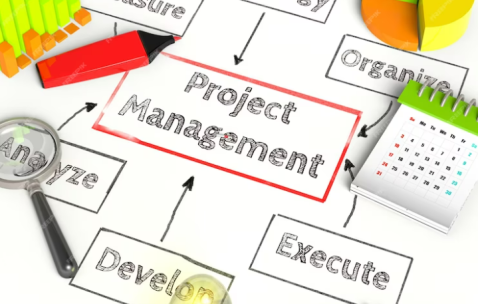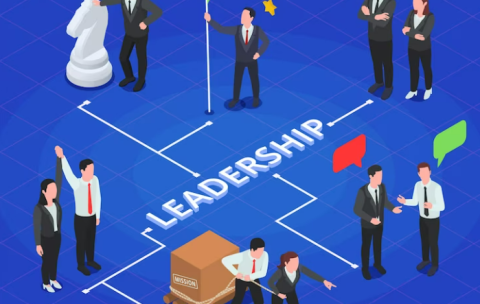Popular Instructors
All Thought Leadership Study Courses
Strategic Communication and Persuasion Skills
Strategic communication and persuasion skills are essential for MBA students …
What you'll learn
Module 1: Foundations of Strategic Communication (4 hours)
Session 1.1: Introduction to Strategic Communication (2 hours)
Understanding the principles and importance of strategic communication.
The role of strategic communication in business and leadership.
Session 1.2: Communication Theories and Models (2 hours)
Exploring key communication theories and models.
Application of these theories in business contexts.
Module 2: Persuasion and Influence Techniques (4 hours)
Session 2.1: Principles of Persuasion (2 hours)
Techniques and psychology of persuasion.
Ethical considerations in persuasive communication.
Session 2.2: Crafting Persuasive Messages (2 hours)
Techniques for developing compelling and persuasive content.
Tailoring messages to different audiences.
Module 3: Effective Communication Channels (4 hours)
Session 3.1: Choosing the Right Communication Channels (2 hours)
Evaluating and selecting effective communication channels.
The impact of digital media on strategic communication.
Session 3.2: Media Relations and Public Speaking (2 hours)
Engaging with the media effectively.
Public speaking and presentation skills for leaders.
Module 4: Communication in Leadership and Crisis Management (4 hours)
Session 4.1: Leadership Communication (2 hours)
Communication styles and strategies for leaders.
Building trust and credibility through communication.
Session 4.2: Crisis Communication (2 hours)
Strategies for effective communication during crises.
Case studies of crisis communication management.
Module 5: Practical Application and Skill Development (4 hours)
Session 5.1: Developing a Strategic Communication Plan (2 hours)
Creating and implementing a strategic communication plan.
Workshop and peer feedback.
Session 5.2: Persuasion in Practice - Role Plays and Simulations (2 hours)
Interactive exercises in persuasive communication.
Role-playing various communication scenarios.
Personal Branding and Professional Networking
Personal branding and professional networking are crucial skills in today’s …
What you'll learn
Module 1: Foundations of Personal Branding (4 hours)
Session 1.1: Introduction to Personal Branding (2 hours)
Understanding the concept and importance of personal branding.
Assessing and defining one's personal brand.
Session 1.2: Digital Personal Branding (2 hours)
Leveraging social media and digital platforms for personal branding.
Online reputation management strategies.
Module 2: Strategic Networking Skills (4 hours)
Session 2.1: Principles of Effective Networking (2 hours)
Building a professional network strategically.
Networking etiquette and best practices.
Session 2.2: Networking in Digital Age (2 hours)
Maximizing online networking opportunities (LinkedIn, professional forums).
Virtual networking strategies and techniques.
Module 3: Communication and Presentation Skills (4 hours)
Session 3.1: Effective Communication for Personal Branding (2 hours)
Crafting and delivering your personal brand message.
Storytelling and elevator pitch techniques.
Session 3.2: Public Speaking and Presentation Skills (2 hours)
Developing public speaking skills for personal branding.
Creating impactful presentations for networking events.
Module 4: Building and Maintaining Professional Relationships (4 hours)
Session 4.1: Long-term Relationship Building (2 hours)
Techniques for cultivating and maintaining lasting professional relationships.
The role of mentorship and professional groups.
Session 4.2: Personal Branding and Ethics (2 hours)
Ethical considerations in personal branding and networking.
Balancing self-promotion with authenticity and integrity.
Module 5: Practical Application and Case Studies (4 hours)
Session 5.1: Personal Branding Project (2 hours)
Developing a comprehensive personal branding plan.
Workshop and peer review session.
Session 5.2: Networking Simulation and Analysis (2 hours)
Role-play and simulation exercises in networking scenarios.
Analyzing real-world case studies of successful personal branding.
Negotiation and Conflict Management
Negotiation and conflict management are essential skills for MBA students, …
What you'll learn
Module 1: Principles of Negotiation (4 hours)
Session 1.1: Fundamentals of Negotiation (2 hours)
Introduction to negotiation concepts and stages.
Understanding different negotiation styles and strategies.
Session 1.2: Preparing for Negotiation (2 hours)
Setting negotiation objectives and limits.
Role-play exercises on negotiation preparation.
Module 2: Advanced Negotiation Techniques (4 hours)
Session 2.1: Tactical Approaches in Negotiation (2 hours)
Exploring advanced negotiation tactics.
Psychological aspects and persuasion techniques in negotiation.
Session 2.2: Cross-Cultural Negotiation (2 hours)
Understanding the impact of cultural differences in negotiation.
Strategies for effective cross-cultural negotiation.
Module 3: Conflict Resolution Skills (4 hours)
Session 3.1: Identifying and Understanding Conflicts (2 hours)
Types and sources of conflicts in organizational settings.
Conflict analysis and assessment tools.
Session 3.2: Conflict Resolution Techniques (2 hours)
Strategies for resolving conflicts.
Role-playing scenarios for conflict resolution practice.
Module 4: Communication in Negotiation and Conflict (4 hours)
Session 4.1: Effective Communication for Negotiation (2 hours)
The role of communication in negotiation.
Active listening and assertiveness in negotiations.
Session 4.2: Communication Strategies in Conflict Management (2 hours)
Enhancing communication skills for conflict resolution.
Case studies of communication in conflict scenarios.
Module 5: Practical Application and Case Studies (4 hours)
Session 5.1: Negotiation Simulations (2 hours)
Practical negotiation exercises and simulations.
Feedback and discussion on negotiation outcomes.
Session 5.2: Analyzing Conflict Management Case Studies (2 hours)
Examination of real-world conflict management cases.
Group discussion and lessons learned.
Innovation and Creative Problem-Solving
Innovation and creative problem-solving are pivotal in today’s rapidly changing …
What you'll learn
Module 1: Foundations of Innovation and Creativity (4 hours)
Session 1.1: Understanding Innovation and Creativity (2 hours)
Exploring the concepts of innovation and creativity in business.
Differentiating between incremental and radical innovation.
Session 1.2: Cultivating a Creative Mindset (2 hours)
Techniques to foster creativity and innovation in individuals and teams.
Overcoming barriers to creativity.
Module 2: Creative Problem-Solving Techniques (4 hours)
Session 2.1: Problem-Solving Frameworks (2 hours)
Introduction to various problem-solving models and frameworks.
Applying creative thinking to problem-solving.
Session 2.2: Design Thinking and Human-Centered Design (2 hours)
Deep dive into the design thinking process.
Case studies on human-centered design solutions.
Module 3: Ideation and Concept Development (4 hours)
Session 3.1: Ideation Techniques (2 hours)
Brainstorming, mind mapping, and other ideation strategies.
Effective techniques for generating and developing ideas.
Session 3.2: From Idea to Prototype (2 hours)
Turning ideas into actionable concepts.
Basics of prototyping and testing.
Module 4: Innovation Strategy and Management (4 hours)
Session 4.1: Strategic Innovation Management (2 hours)
Aligning innovation with business strategy.
Managing innovation projects and portfolios.
Session 4.2: Leading for Innovation (2 hours)
Leadership styles that foster innovation.
Building and leading innovative teams.
Module 5: Practical Application and Case Studies (4 hours)
Session 5.1: Innovation in Practice (2 hours)
Workshop on applying innovative problem-solving to real business challenges.
Interactive group activities for hands-on experience.
Session 5.2: Analyzing Innovation Case Studies (2 hours)
Discussion of successful and failed innovation cases.
Drawing lessons and best practices from real-world examples.
Advanced Leadership and Team Dynamics
Advanced leadership and team dynamics are critical areas of focus …
What you'll learn
Module 1: Contemporary Leadership Theories (4 hours)
Session 1.1: Evolution of Leadership Theories (2 hours)
Exploring modern leadership theories and models.
Comparing and contrasting various leadership styles.
Session 1.2: Leadership in a Changing World (2 hours)
Understanding the challenges of leadership in today’s global and digital environment.
Adaptability and resilience as key leadership traits.
Module 2: Building High-Performing Teams (4 hours)
Session 2.1: Dynamics of Team Formation (2 hours)
Stages of team development.
Creating and fostering effective team structures.
Session 2.2: Managing Team Diversity (2 hours)
Strategies for leading diverse and inclusive teams.
Leveraging diversity for team innovation and performance.
Module 3: Communication and Influence in Leadership (4 hours)
Session 3.1: Effective Leadership Communication (2 hours)
Developing advanced communication skills for leaders.
Techniques for influencing and motivating team members.
Session 3.2: Conflict Resolution and Negotiation (2 hours)
Strategies for managing conflicts within teams.
Negotiation skills for leaders.
Module 4: Emotional Intelligence and Ethical Leadership (4 hours)
Session 4.1: Emotional Intelligence in Leadership (2 hours)
Role of emotional intelligence in effective leadership.
Developing self-awareness, empathy, and social skills.
Session 4.2: Ethics and Integrity in Leadership (2 hours)
Understanding the ethical responsibilities of leaders.
Promoting ethical practices and integrity within teams.
Module 5: Leadership in Practice (4 hours)
Session 5.1: Leadership Case Studies (2 hours)
Analysis of real-world leadership challenges and solutions.
Lessons learned from successful and failed leadership examples.
Session 5.2: Leadership Project (2 hours)
Developing a leadership action plan or project.
Applying learned concepts to a practical leadership scenario.
Adaptive Project Management and Organizational Skills
Adaptive Project Management is a dynamic approach to managing projects, …
What you'll learn
Module 1: Introduction to Adaptive Project Management (4 hours)
Session 1.1: Principles of Adaptive Project Management (2 hours)
Understanding the adaptive project management approach.
Differences between traditional and adaptive methodologies.
Session 1.2: Agile and Scrum Fundamentals (2 hours)
Overview of Agile and Scrum frameworks.
Roles, ceremonies, and artifacts in Agile/Scrum.
Module 2: Planning and Executing Adaptive Projects (4 hours)
Session 2.1: Adaptive Planning Techniques (2 hours)
Techniques for planning in dynamic and uncertain environments.
Creating flexible and responsive project plans.
Session 2.2: Executing and Monitoring Adaptive Projects (2 hours)
Strategies for effective execution of adaptive projects.
Monitoring progress and adapting to changes.
Module 3: Leadership in Adaptive Project Management (4 hours)
Session 3.1: Leading Agile Teams (2 hours)
Leadership skills for managing Agile teams.
Fostering collaboration and empowerment in teams.
Session 3.2: Stakeholder Management in Agile Projects (2 hours)
Techniques for engaging and managing stakeholders in adaptive projects.
Communication strategies for Agile environments.
Module 4: Tools and Techniques for Adaptive Management (4 hours)
Session 4.1: Tools for Agile Project Management (2 hours)
Utilizing digital tools and software for Agile project management.
Integrating technology in project workflows.
Session 4.2: Risk Management in Adaptive Projects (2 hours)
Identifying and managing risks in a flexible project environment.
Techniques for effective risk mitigation.
Module 5: Case Studies and Practical Application (4 hours)
Session 5.1: Analyzing Agile Project Case Studies (2 hours)
Discussion on real-world case studies of adaptive project management.
Lessons learned and best practices.
Session 5.2: Agile Project Simulation (2 hours)
Hands-on simulation of an Agile project.
Group activity and feedback session.
Mastering Strategic Perspectives: A Comprehensive Guide
Welcome to “Mastering Strategic Perspectives: A Comprehensive Guide”, an in-depth …
What you'll learn
Understand the fundamental principles of strategic thinking and decision-making.
Explore various strategic frameworks and models used by successful businesses.
Analyze real-world case studies to understand the application of strategic perspectives.
Develop the ability to think critically and anticipate future business trends and challenges.
Enhance decision-making skills, ensuring they are aligned with long-term business objectives.
Foster a deep understanding of the internal and external factors that influence business strategy.
Cultivate leadership skills essential for guiding teams and organizations through strategic initiatives.
Learn how to communicate strategic visions and plans effectively to diverse stakeholders.
Apply strategic thinking to solve complex business problems and capitalize on opportunities.
Build a mindset of continuous learning and adaptation to remain competitive in the business world.
Mastering White Papers: From Concept to Publication
Welcome to “Mastering White Papers: From Concept to Publication,” a …
What you'll learn
Understand the purpose, types, and importance of white papers in the professional world.
Develop skills to identify and analyze the target audience for your white paper.
Learn the art of researching and gathering relevant data for your white paper.
Master the structure and content development for different types of white papers.
Enhance writing skills to create clear, concise, and compelling white papers.
Understand the strategies for effectively promoting and publishing your white paper.
Develop critical thinking and analytical skills to evaluate existing white papers.
Gain hands-on experience through practical assignments and real-world applications.
Enhance your credibility and influence in your professional field through effective white papers.
Build a portfolio of white papers, showcasing your expertise and knowledge in your domain.



















